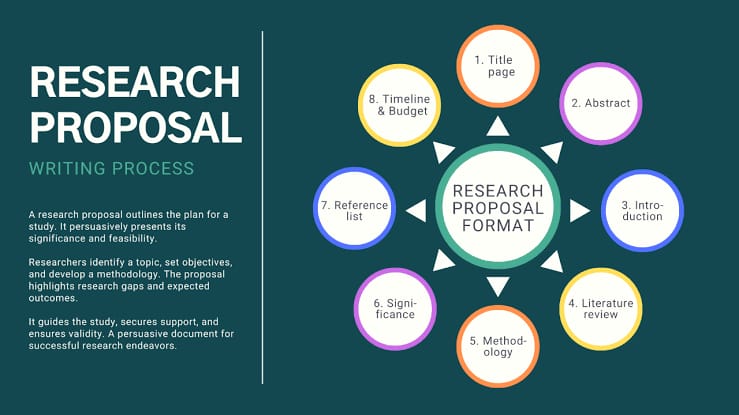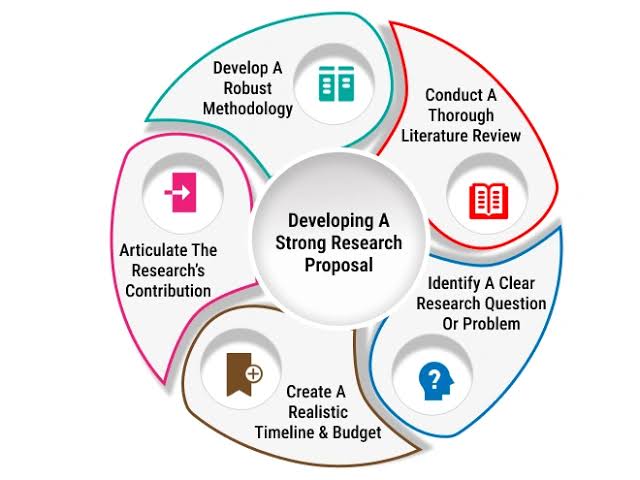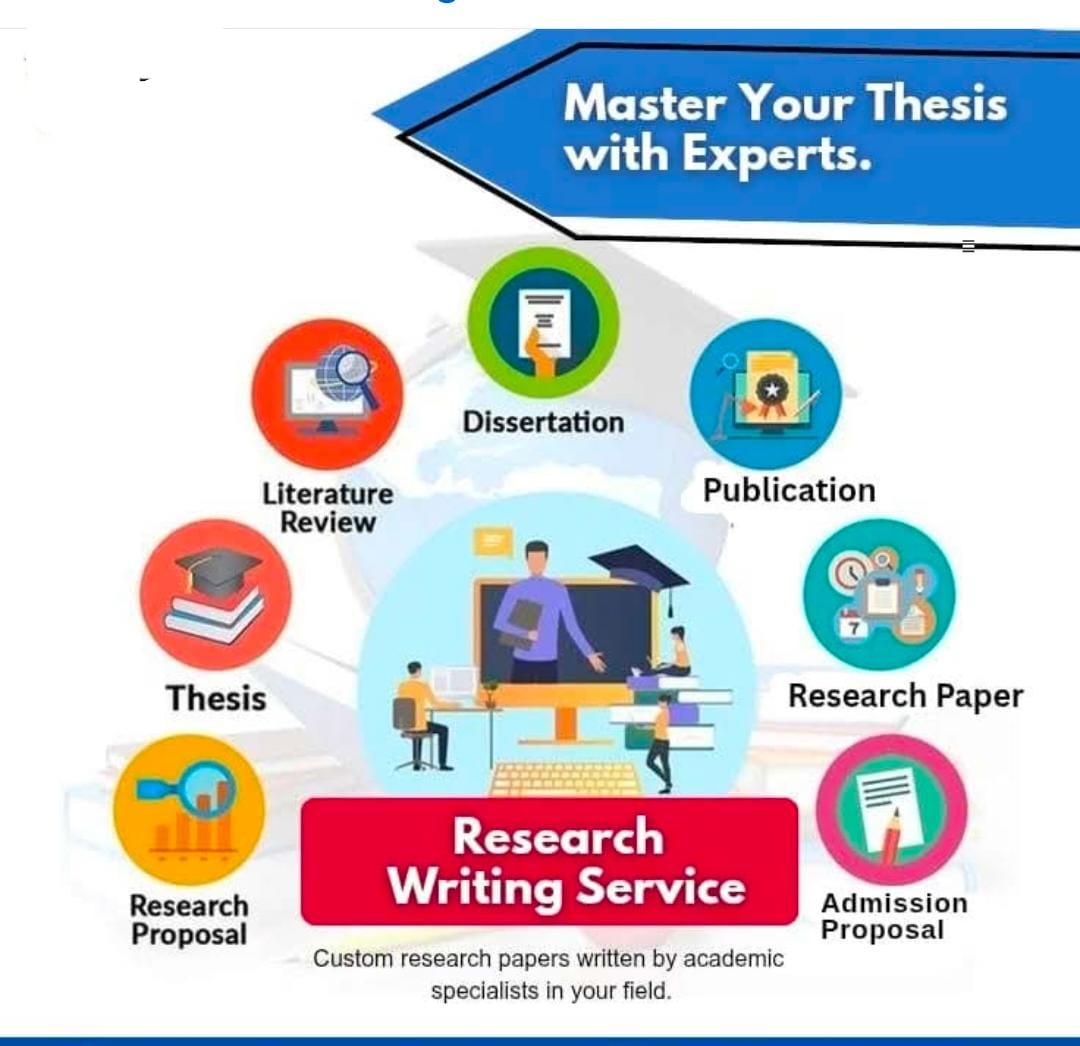


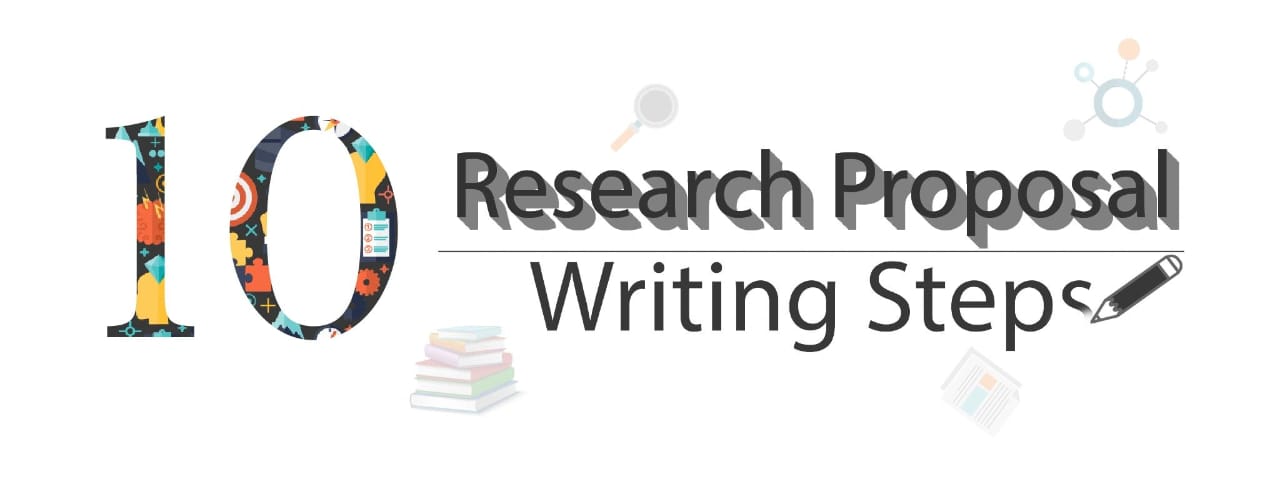
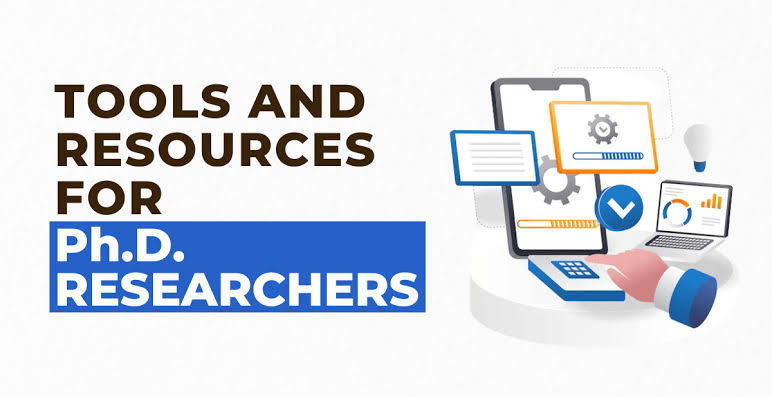
10 Research Proposal Writing Steps
Table of contents
Step 1 : Cover Page
Step 2 : Introduction
Step 3 : Literature Review
Step 4 : Research Methodology
Step 5 : Knowledgeable Contributions
Step 6 : Ethical Approval
Step 7 : Research Timeline
Step 8 : Research Expenditure
Step 9 : Reference List
Step 10 : Appendices
- The work-integrated edge Give your qualifications a boost without a career break
- Industry relevant curriculumIntegrate modern academic content with the evolving requirements of the workplace
- Experiential learningLearn by applying concepts to simulated and real-work situations
- Virtual and Remote LabsAccess hardware and software tools remotely
- Case Studies and AssignmentsLearn from study material that reflects simulated and real-work situations
- Dissertation / Project WorkApply knowledge and concepts to a real-world, complex problem
- NIILM FacultyEngage with experts using interactive, technology-enabled virtual classrooms
- Anytime Digital LearningGain from recorded lectures, programme handouts, and recorded lab content
- Continuous Assessment Evaluate your progress with graded assignments, quizzes and mid-semester and comprehensive
PhD Course Overview
Course Name
Doctor of Philosophy (PhD)
Duration
3 to 6 years (varies by university)
Eligibility
Master’s degree (or equivalent)
Admission Process
Entrance exam + Interview (varies)
Mode
Full-time / Part-time / Online
Specializations
Multiple fields (Science, Arts, Commerce, Engg , Management.)
Course Structure
Research Proposal, Coursework, Thesis Submission
Average Fees
₹50,000 - ₹5,00,000 (varies by university)
Career Scope
Academia, Research, Corporate, Government
Key Requirement
Research paper publication (varies)
Types of PhD Programs
1. Full-Time PhD
- Duration: 3 to 6 years
- Requirements: Full-time commitment to research
- Best for: Individuals with the ability to focus solely on research without the need for a job or other commitments.
2. Part-Time PhD
- Duration: 5 to 8 years
- Requirements: Flexible study schedule with less frequent full-time attendance
- Best for: Working professionals who wish to earn a PhD without leaving their job.
3. Online PhD
- Duration: 3 to 6 years (varies by program)
- Requirements: Online learning, limited on-campus activities
- Best for: Students who need flexibility in their schedule and prefer a remote learning environment.
4. Integrated PhD
- Duration: 4 to 6 years
- Requirements: Bachelor’s degree to start, integrated coursework, and research components
- Best for: Students who want to progress directly into doctoral research after their undergraduate studies.
5. Distance Learning PhD
- Duration: 3 to 7 years
- Requirements: Remote learning with occasional in-person activities or exams
- Best for: Students who require maximum flexibility and are located in distant areas from institutions.
6. Industry PhD
- Duration: 3 to 6 years
- Requirements: Collaboration with industry partners, applied research
- Best for: Students interested in pursuing research that has immediate applications in the business world or technology sectors.
7. Research-Based PhD
- Duration: 3 to 6 years
- Requirements: Original research and thesis submission
- Best for: Students who are passionate about contributing new knowledge to their academic field and prefer a research-focused approach with minimal coursework.
PhD Admission Process
PhD admissions in India typically follow this process:
- Notification & Application: Universities release admission notices on their websites, specifying eligibility, entrance exams, and deadlines.
- Entrance Exam & Exemption Criteria: Candidates appear for universityspecific or national-level entrance exams. Some applicants (UGC-NET/JRF qualified) may be exempted.
- Personal Interview & Research Proposal: Shortlisted candidates must present their research proposals and attend an interview.
- Final Selection & Enrollment: Based on performance in exams, research proposals, and interviews, candidates are offered admission.
Eligibility Criteria for PhD Admission
The general eligibility criteria for PhD programs in India are:
- Educational Qualification: A master’s degree (M.A., M.Sc., M.Tech., MBA, etc.) with at least 55% marks (50% for SC/ST/OBC/PwD).
- Entrance Exam Requirement: UGC-NET, CSIR-NET, GATE, or universityspecific PhD entrance exams.
- Exemptions: Candidates with JRF (Junior Research Fellowship), M.Phil., or relevant work experience in research fields may be exempted from entrance exams.
- Work Experience (for Part-Time PhD): Some universities require at least 3- 5 years of professional experience.
PhD Entrance Exams in India
1. University-Specific PhD
- Research Aptitude Test: This evaluates the candidate’s ability to conduct research, logical reasoning, and analytical skills.
- Subject-Specific Test: This assesses knowledge related to the candidate’s chosen research field.
- University of Delhi (DU)
- Jawaharlal Nehru University (JNU)
- Banaras Hindu University (BHU)
- University of Hyderabad
- Jamia Millia Islamia (JMI)
- Private Universities (Amity, VIT, SRM).
2. National-Level PhD Entrance Exams
There are several national-level exams that are conducted for PhD admissions across multiple universities:
- CSIR UGC NET (National Eligibility Test): Primarily for science and engineering disciplines. Successful candidates are eligible for fellowships and can apply to various universities for PhD programs.
- UGC NET (University Grants Commission National Eligibility Test): This exam is for candidates wishing to pursue research in the humanities, social sciences, and other related fields. It also qualifies candidates for Junior Research Fellowship (JRF).
- GATE (Graduate Aptitude Test in Engineering): For engineering graduates, GATE is often required for admission into PhD programs in IITs, NITs, and other institutions.
- ICMR JRF (Indian Council of Medical Research Junior Research Fellowship): For medical science research, particularly in areas like biochemistry, microbiology, and biotechnology.
- DBT JRF (Department of Biotechnology Junior Research Fellowship): Focuses on biotechnology research across various institutes.
Exemptions from Entrance Exams
Candidates with JRF, GATE, or MPhil degrees may receive direct interview calls, skipping entrance tests.
Agriculture
Biochemistry
Biotechnology
Botany
Commerce
Civil Engineering
Computer Science
Chemistry
Computer Science and Application
Computer Science and Engineering
ARTS
English
Education
Economics
Environmental Science
Electrical Engineering
Electronics and Communication
Engineering
Physics
Philosophy
Psychology
Physical Education & Sports
Social Work
Zoology
Fashion Designing
Forensic Science
Geography
Geology
History
Hindi
Hospitality & Tourism Management
Home Science
History Journalism and Mass Communication
Law
Library & Information Science
Management
Microbiology
Mathematics
Mechanic Engineering
Political Science
Performing and Fine Arts
Public Administration
Punjabi
Sociology
Statistics
Sanskrit
Yogic Science
–Telugu / Tamil /Kannada
Doctorate of Business Administration
Introduction to Doctorate for Working Professional
Eligibility Criteria for Doctorate for Working Professional
- Educational Qualification: Master’s degree or equivalent from a recognized university in a relevant field.
- Work Experience: Typically 3 to 5 years of professional or managerial experience (varies by institution and program).
- Research Proposal: A brief research synopsis or concept note in the chosen area of study (required by most programs).
- Entrance Exam/Interview: Some universities may conduct an entrance test and/or personal interview to assess research aptitude and professional experience.
Fees
Program Fee (India): Typically ranges from ₹9 – 11 lakh plus GST, payable over multiple installments. For example, IIM Shillong charges a total of ₹11 lakh + GST, structured as ₹50 k acceptance, ₹4.5 l, ₹4 l, ₹1 l, ₹1 l over four years
International & Executive Doctorates: Fees for online programs abroad (e.g., Online DBA) range from ₹7 lakh to ₹12 lakh, depending on immersion options
Part-Time PhD (UK model): Domestic part-time PhDs cost roughly 50–60% of full-time annual tuition per year, but since they’re longer, overall cost may equal or exceed fulltime fees.
1.PhD Admission Process
2.Refer to Guides
3.PhD Topic Selection
4.Proposal Writing
5.Research Paper Writing
6.Research Methodology Help
7.Literature Review Writing
8.Review Paper Writing
9.Synopsis Writing
10.Thesis Writing / Dissertation Writing
11.Editing and Proofreading
12.Journal Publication Support
13.Journal Revision Help
14.Research Implementation
15.PhD Viva Process
16.Guideship Help




